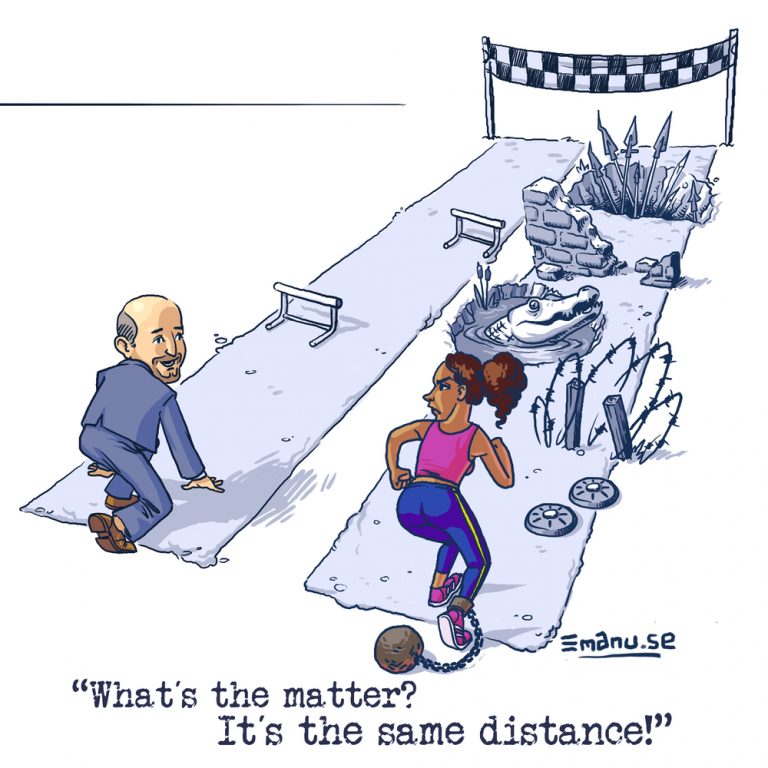Disability and Opportunity: Can Inheritance Bridge the Gap?

One of the underlying assumptions in this text has been that financial privilege correlates with other privileges (see for instance our article on Biological Feudalism). The idea, put simply, is that if your parents are wealthy, you are likely to be better educated, more healthy, more intelligent and enjoy a stronger social network. This, statistically, is true. However, what about the cases where it is not true, where you may come from a financially privileged background but are rather disadvantaged in other realms? There are many possible scenarios and personas here that we could talk about, but the most obvious and exemplary case is the one of physical and mental disabilities.
From an equality of opportunity perspective, there are at least two possible thoughts to consider here:
1) Wouldn’t it be fair if a family could leave an inheritance to a disabled child to make sure the child can afford to cover its special (e.g. medical) needs in the future when all on its own?
2) Even if any of the extra financial expenses would be covered by the state and its social security systems, wouldn’t a financial inheritance be able to partially make up for the biological and socio-cultural disadvantages that a disabled person has to suffer from? Wouldn’t it be fair, if you are disadvantaged in one sphere, to be granted advantage in other spheres?
At first sight, it seems that private inheritance could indeed increase equality of opportunity in such cases, as it could help make of for financial and non-financial disadvantages. Thus, one could come to the conclusion that an abolition of private inheritance or any inheritance taxation system should have exceptions for such cases of disabilities and other disadvantages.
However, relying on inheritance for this purpose poses significant risks. Not all families are financially capable or willing to allocate resources to disabled children. Moreover, systemic inequalities mean that families with lower socio-economic status—often disproportionately linked to disability[1]—are less likely to leave substantial inheritances. In such cases, inheritance fails to address disparities and instead perpetuates them.
The issue is even more stark in low- and middle-income countries, where disabled individuals are frequently deprived of their inheritance rights altogether. This systemic exclusion exacerbates existing inequalities and underscores the unreliability of private inheritance as a mechanism for promoting equality of opportunity.[2]
A more equitable solution lies in strengthening public social security systems to ensure all disabled individuals have access to necessary resources, regardless of family background. While it is easy to sympathize with allowing inheritance in such cases, a robust public safety net would render this argument unnecessary, providing consistent and reliable support for vulnerable populations.
This is also backed from the perspective of disabled individuals. Relying on private inheritance to address their needs raises serious concerns about autonomy and dignity. Tying their future well-being to the goodwill or financial capacity of their families places them in a vulnerable position, often making them dependent on decisions beyond their control. This dependence can be particularly problematic in families where disabled individuals are seen as a burden or where inheritance disputes arise. Many disabled people advocate for systemic solutions that provide guaranteed, state-funded support, ensuring their needs are met regardless of familial circumstances. A robust public safety net would not only reduce their dependence on familial resources but also affirm their equal status as citizens, deserving of the same rights and opportunities as everyone else. This shift would promote greater independence, dignity, and equality for disabled individuals, breaking away from a model that risks perpetuating their marginalization.
Further Reading
[1] Blackburn et al. (2010): “Research article Prevalence of childhood disability and the characteristics and circumstances of disabled children in the UK: secondary analysis of the Family Resources Survey”. BMC Pediatrics 10:21
[2] Groce et al. (2014). “Inheritance, Poverty, and Disability.” Disability & Society 29 (10): 1554–68. doi:10.1080/09687599.2014.969831.





